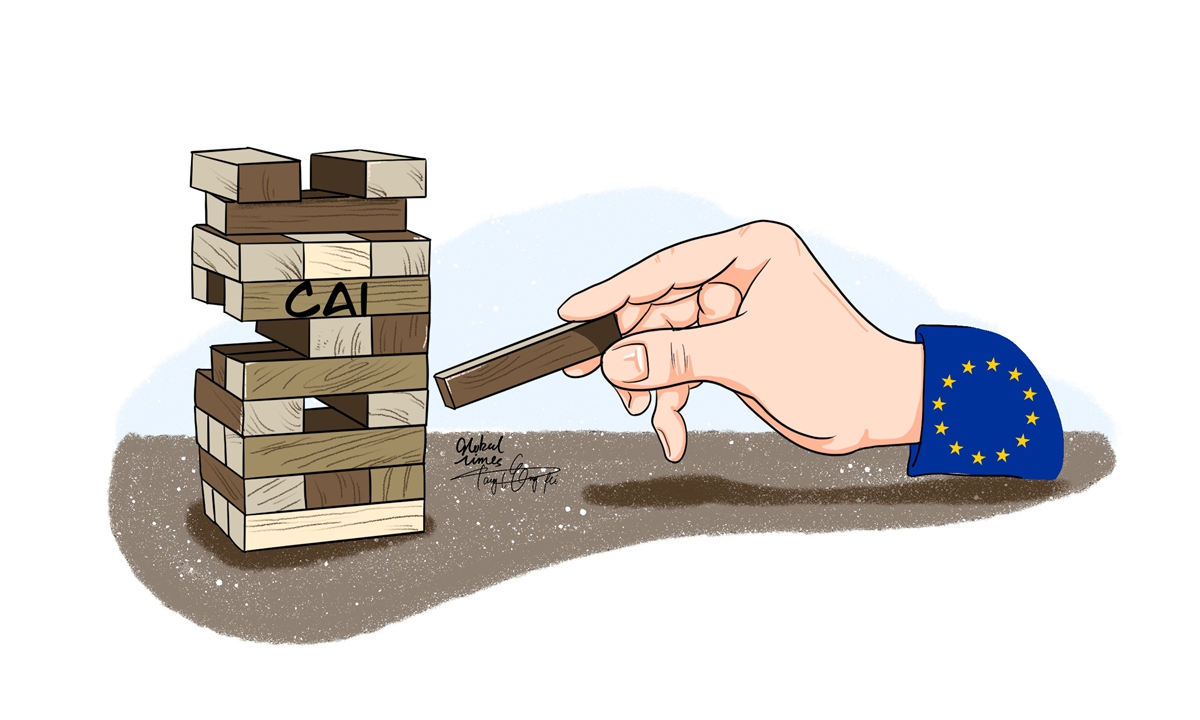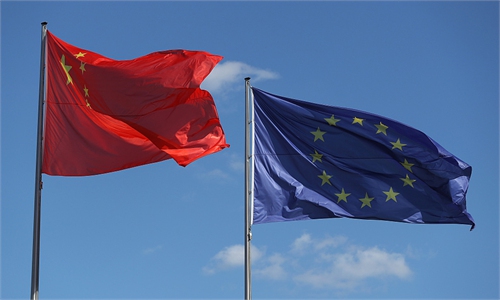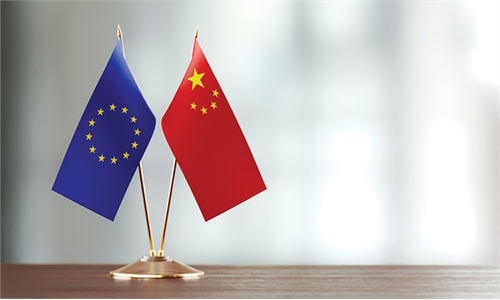COMMENTS / EXPERT ASSESSMENT
EU shouldn’t be held hostage by short-sighted politicians

Illustration: Tang Tengfei/GT
The Euro area on Tuesday confirmed a further quarter-on-quarter GDP contraction of 0.6 percent in the first three months, as the European bloc entering another technical recession with GDP declining in nearly all major economies including Germany, Italy, Spain and the Netherlands.It is the second technical recession, defined as two consecutive quarters of economic contraction, of the Euro area since the COVID-19 outbreak. Meanwhile, a report published by Politico revealed that the European Parliament is "expected to pass a motion on Thursday pushing to formally freeze the EU's investment agreement with China."
Deeply struggling in the recession quagmire, however, the EU has lately displayed accelerating confrontational attitude toward China, its largest trading partner, by trying to interfere in China's internal affairs, politically kidnapping European companies' operation in China with baseless human rights accusations, and now, obstructing the ratification of the important agreement of bilateral investment.
Though this latest development has yet to be confirmed, it is not the first time for some biased politicians in Europe, trying to undermine the EU-China Comprehensive Agreement on Investment (CAI) which could play as a game-changer for many European multinationals post-pandemic.
The two sides concluded negotiation of CAI at the end of 2020, after seven long years of marathon negotiations. Rather than a "gift" or favor bestowed by either side, it is a mutually beneficial deal which is of greater significance for European companies or even the EU economy as a whole, when many European economies are still suffering from the economic fallout of the pandemic.
Compared to China's 18.3 percent and the US' 6.4 percent GDP rebounds in the first quarter this year, it is obvious that EU economy has lagged behind.
Indulging in geopolitical calculations, the reckless politicians in Europe are stripping their own domestic companies of a competitive advantage in the world's second largest economy and a huge market.
In fact, bilateral trade between China and the EU in 2020 registered two-way growth, the only one among EU's top 10 trading partners. Also for the first time, China replaced the US to become the EU's largest trading partner last year.
As for China, with or without the impact of the pandemic, it has been steadily driving the growth of the global economy. No matter it is from a short or long term perspective, the iconic investment deal with China will be crucial for many European industries which have already lagged behind in winning a better position in global competition.
The recent ill-advised policy shift of Europe has been widely interpreted by international observers as, to some extent, a result of US government's cajolement since Biden administration came into power in January.
By switching the former unilateral approach of the previous Trump administration to the current ganging-up scheme, Washington is attempting to lure its allies into its clique to serve its suppressing China campaign.
However, does taking sides with the US means gaining benefits from the world's second largest economy? The answer is no, as shown by the latest example of Australia losing market share in China.
Over the past few years, the EU has been seeking to enhance its strategic independence when it comes to diplomatic policies, and there are rational politicians in the bloc repeatedly called on an independent path in its engagement with China, free of directives from Washington.
It is expected that such voices could be heard more often, which will lead the bloc to get back on track to promote the implementation of CAI at the earliest to ensure a more promising future for their businesses, and, their people.
The author is an editor with the Global Times. bizopinion@globaltimes.com.cn



